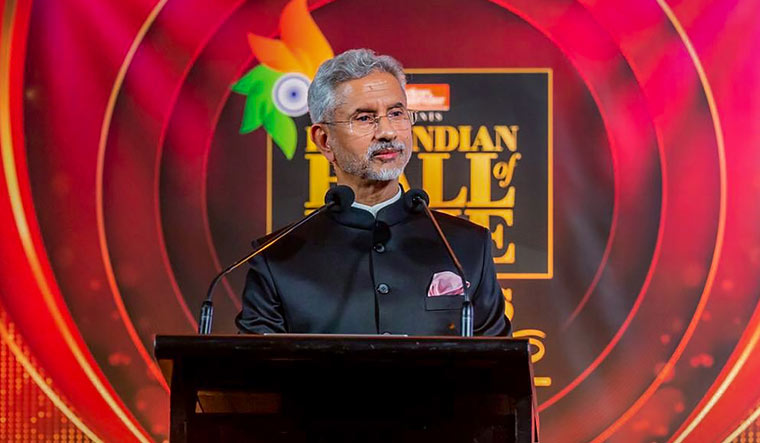
External Affairs Minister S Jaishankar spoke on the transformational changes underway in India where aspirations are becoming achievable rights as he apprised the Indian diaspora in Egypt about advances in the traditionally strong ties between the two countries.
During an interaction with the Indian community in Cairo on Saturday, Jaishankar also talked about the new opportunities in trade and investments, connectivity, education, health and many other domains in India.
One of the interesting developments this year was that after a long time Egypt has started importing wheat from India, Jaishankar said.
"The good thing about Egypt is that the trade has been reasonably balanced. So there is an inclination on both sides to do more," he said.
Jaishankar underlined that the relationship between India and Egypt is good and the possibilities are greater.
"There is enthusiasm in India to explore it," he said.
According to the website of the Indian Embassy in Cairo, the Indian community in Egypt numbers at around 3,200, most of whom are concentrated in the country's capital. There are also a small number of families in Alexandria, Port Said and Ismailia.
A majority of the Indians are either employed with Indian companies or are professionals with various multinationals. About 400 Indian students are studying in Egypt, mainly in Al Azhar University with around 275 students, and the rest in Ain Shams Medical University (around 80 students) and Cairo University, it said.
Jaishankar thanked the Indian diaspora for advancing India's national interests and shaping the country's image in the region.
Replying to a question, Jaishankar said there are various schemes -- production linked incentive schemes -- today to encourage investment in India in different specified domains.
"There are programmes which are designed to support innovation and encourage startups in the country. So, we would definitely hope to see a much more self-reliant and a much more resilient India in the coming years that is an important national object," he said.
Jaishankar said several countries literally shut down during COVID as the supply chain didn't work. Today due to conflict in Ukraine there is again a possibility of disruption in the supply chain. There are shortages of food and difficulties with energy.
"So, all these are lessons to us that we cannot, you know, a big society like India, which has such a large responsibility, and such as a big segment of people who are vulnerable to even small changes in the livelihood, we have to find ways of protecting them better of ensuring that their lives are not unnecessarily at risk and for that, it is all the more important that we build capacities at home," he asserted.
Responding to a question on how India is going to become the health hub of the world, Jaishankar said, "Health Hub is a very strong term. I think our challenges are broader in a way, because the challenges are at different levels."
Interestingly, India is a health hub for many countries. People would be surprised at the number of foreigners who visit India for medical purposes, not just from the immediate neighbourhood, but from the Gulf, from East Africa, from Central Asia, he said.
"So, I have visibility of it, because, as a Foreign Minister, for us, we see the results, we see the request from them for easy travel. So, the idea that India can offer quality care...that is there," Jaishankar said, adding that he now sees the prospect of Indian medical institutions actually going out of India more as a business. "And some of it is happening...in collaboration with other countries."
The minister said India's reputation as the pharmacy of the world has grown.
Underlining how India provided Covid vaccines to the world, Jaishankar said, "If you go to islands in the Caribbean, in specific parts of Africa, where actually vaccines were made much closer to them, but they didn't get the vaccines from those centres, they wanted vaccines from us."
There were also countries which had stockpiled vaccines of multiple sizes of their population, he said.


